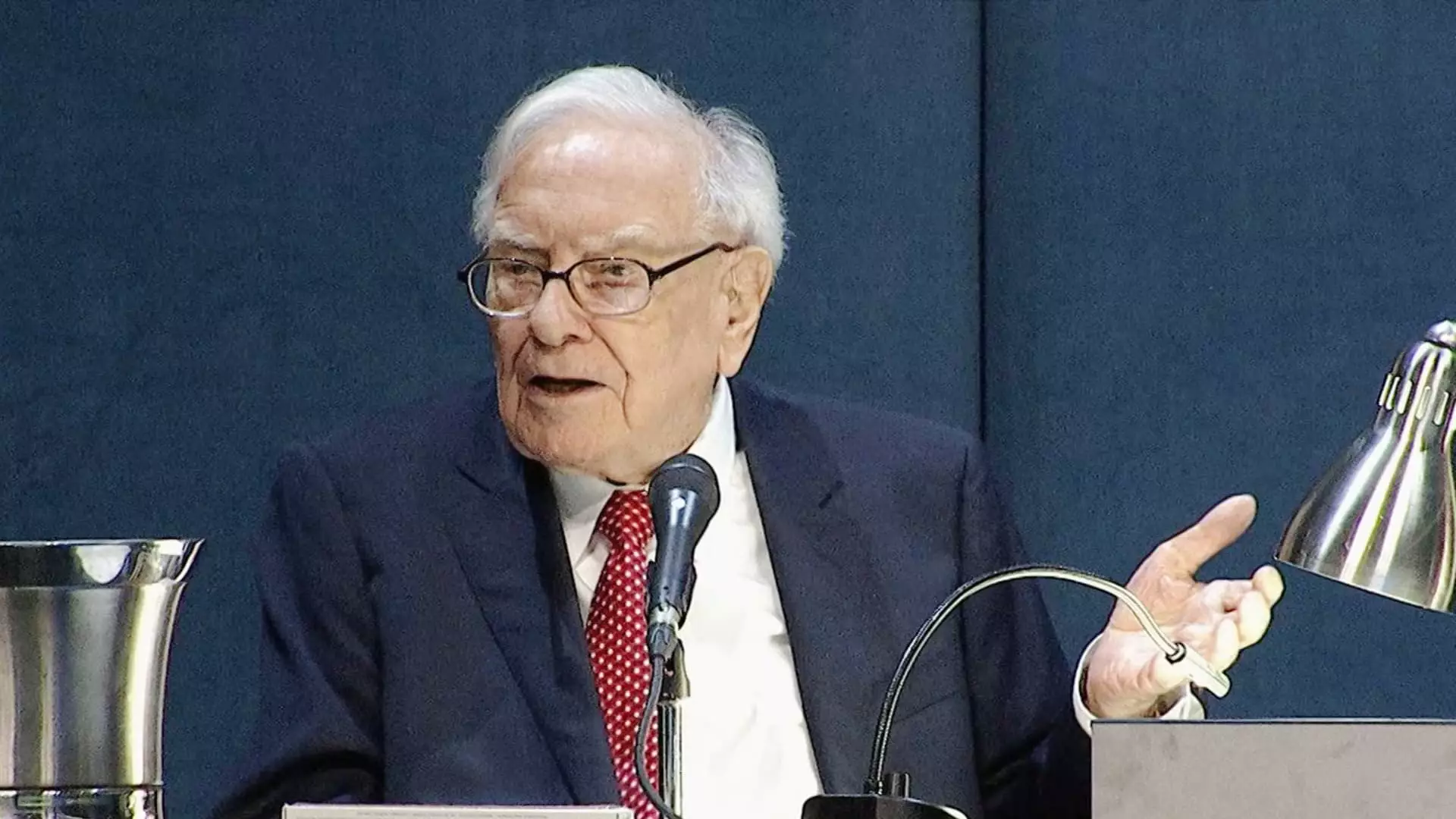Warren Buffett, widely hailed as one of the most successful investors of all time, has long exemplified the buy-and-hold investment philosophy. His long-term strategies have made him revered in the investment community; however, when the “Sage of Omaha” makes a significant stock sell-off, as he recently did with Bank of America, it raises eyebrows and poses critical questions about market dynamics and competitive advantages within industries.
Buffett’s investment strategies are anchored in a profound understanding of the businesses he invests in. Preferring to hold on to stocks indefinitely, he only opts to sell when he perceives a substantial shift that may threaten a company’s competitive position. His philosophy is succinctly captured in a statement made at Berkshire Hathaway’s annual meeting in 2009: “If we made the right decision going in, we like to ride that a very long time.” This commitment to long-term holding highlights his strategy of undeterred faith in companies with solid fundamentals and competitive advantages.
However, this sentiment turns decidedly critical when a fundamental change occurs. Reflecting on his divestitures, Buffett has candidly acknowledged, “If the competitive advantage disappears… we sell.” This skepticism becomes evident when examining his past decisions, such as the sell-off of newspaper holdings in the early 2020s due to diminishing advertising revenue and the disruptive shift towards digital media. The erosion of competitive edges often triggers a reconsideration of investments that were once viewed as impregnable.
A noteworthy instance of Buffett’s evolution as an investor has surfaced with his recent disposal of approximately $9 billion in Bank of America stock beginning mid-July. This decision is striking, especially given that Buffett previously took a considerable gamble on the bank during the turbulent financial climate of 2011 by investing $5 billion in preferred stock and warrants, aiming to stabilize the institution amidst turmoil.
Buffett converted these warrants to common stock in 2017 and subsequently increased his stake in Bank of America through substantial acquisitions in 2018 and 2019. The recent divesture appears particularly significant in light of his longstanding commitment to the banking sector. His latest move follows a chain of selling activities that also involved other long-held bank stocks like JPMorgan, Goldman Sachs, and Wells Fargo. Ironically, while Berkshire maintains a 10.3% stake in Bank of America, persistent selling might lead to them slipping below significant reporting thresholds, raising further questions about the future of Buffett’s engagement in the banking sector.
What’s behind these profound shifts in Buffett’s investment strategy? Increasingly, he has expressed trepidations regarding the banking sector’s evolving dynamics. Amidst the regional banking crisis that claimed the likes of Silicon Valley Bank and First Republic, Buffett suggested that consumer confidence in banks has waned significantly: “The American public is probably as confused about banking as ever.” Such sentiments underscore a growing caution, implying that shifts in public perception could bear lasting implications for banking stability.
Buffett reflects on the lasting impacts of previous financial upheavals—both the 2008 financial crisis and the more recent bank collapses have informed not only market sentiment but also the structural integrity of banking institutions. The introduction of digital banking and fintech solutions has made bank runs alarmingly facile, amplifying concerns about depositor behavior during crises. In this unpredictable climate, Buffett’s cautious approach towards bank ownership signals an acute awareness of systemic vulnerabilities that could disrupt once-stable investments.
As one attempts to project what lies ahead for Buffett and Berkshire Hathaway, it is crucial to embrace the notion that adaptability in investment philosophy is vital. Buffett himself stated candidly, “Do I know how to project out what’s going to happen from here? The answer is I don’t.” This admission comes with implications not only for Buffett but for investors at large. As the market landscape becomes increasingly complex and unpredictable, reliance on historical performance may no longer suffice; investors must remain vigilant in continuously reassessing the competitive dynamics that govern different industries.
Warren Buffett’s recent strategic moves illustrate that even the most prudent and successful investors must navigate shifting tides in market sentiment and fundamentals. While Buffett remains a champion of long-term investing, his recent sell-offs illuminate a more nuanced approach in response to distinctive market pressures. Understanding and adapting to these evolving dynamics will be paramount for both Buffett and investors angling to emulate his legendary success.

